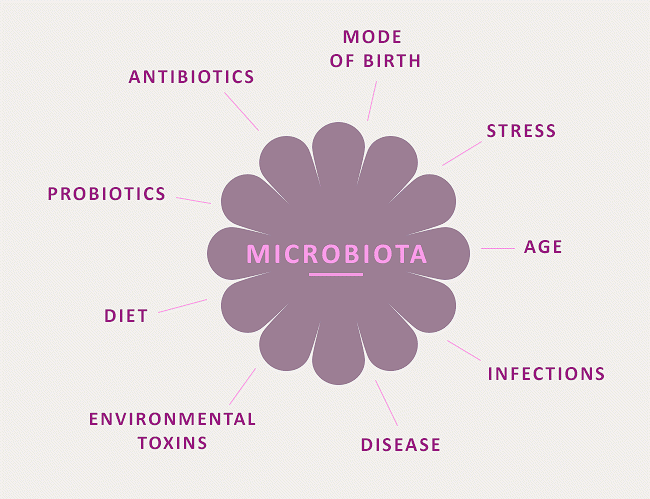The Basics of Gut Health
Oct 2021
In the Autumn of 2020, I asked my lovely newsletter subscribers what they would like to see more of from me in the future. The overwhelming response was ‘gut health’.
So, in response I have given this gut health mini-series (originally written a few years ago) a real overhaul, updated it to meet my current practice and philosophy, and linked in all sorts of useful and relevant articles to expand on various topics. I’ve also added some of my favourite products and gut health books at the end of each section, in case you’d like a few of my personal recommendations. I hope you find it helpful.
What do we mean by the ‘gut’?
The gut is a collection of organs, running from the mouth to the bowels, with help from the stomach, liver, pancreas and gallbladder along the way. All of these structures work together to extract the greatest amount of nutrition from whatever we choose to eat.
Alongside our digestive organs, we increasingly understand the powerful impact that our gut microbiota has on health. The microbiota consists of trillions of microbes (bacteria, yeast, funghi and viruses), which live inside our bowels, interacting not only with the food we eat, but also with each other and with us. Each microbiota is unique to each person.
When in harmonious balance, these microbes helpfully aid our digestion, make vitamins and other nutrients, break down dietary toxins, strengthen the body’s internal barrier against the contents of gut, prevent overgrowth of bacteria which can make us unwell, and can even influence our immune system and mood (Butel, 2014). But when out of balance, these microbes may also have the potential to negatively impact our health, too. I therefore now see the ‘gut’ not only as an organ system, but as an ecosystem too.
All sorts of factors may affect the composition and function of our microbiota, and therefore our gut health, including:

Hippocrates reportedly said that ‘all disease starts in the gut’. Clearly this isn’t true all of the time (take genetic disorders, for example), but a significant proportion of chronic diseases may indeed be linked to gut health. It has just taken medical science a few thousand years to catch up!
What is a healthy gut?
There is actually no specific definition of what makes a ‘healthy’ gut, because that depends so much on the individual.
But in general, I personally would consider a healthy gut to:
Be free from persistent digestive symptoms (such as bloating, abdominal pain or disrupted bowel habits). We all get the odd mild symptom from time to time though, but when things change, are persistent, or show any worrying signs (see below) this should be flagged to your healthcare provider promptly.
Eliminate regular, formed (but easily passed) stools*
Allow complete digestion and absorption of nutrition. The average time for the entire process of digestion / absorption is 24 hours, although this does vary a lot between individuals.
* This little step, which wraps around your loo, helps your body adopt a physiological squatting position when opening your bowels which some people find beneficial with constipation.
What is an unhealthy gut?
There are certain unhealthy gut symptoms that are known as ‘red flags’. These are important warning signs that should be discussed with a doctor as soon as possible. Although some of them may represent a harmless condition that will settle itself, it is important if you have any of these symptoms to seek a medical opinion promptly.
These signs may include (note that this is absolutely not an exhaustive list – please speak to your GP if you have any concerns whatsoever about your gut health);
A sudden, persistent change your bowel habits
Any bleeding, or black, tarry stools
Persistent bloating
Increasing heartburn, indigestion or stomach pains
Abdominal pain
Losing weight unintentionally
Any difficulty or pain on swallowing
Within the scope of my nutritional practice, I would also look at all sorts of other symptoms (even if they are not necessarily directly related to the gut), such as skin, mood, energy, weight and more. There’s an old phrase in Nutritional Therapy that states ‘what happens in the gut doesn’t stay in the gut’, and so I do look beyond just digestive symptoms when talking with my clients.
How might gut health affect weight?
We know that our gut needs to be functioning effectively to be able to digest and absorb the nutrition that we are eating. If this function becomes impaired, it could potentially lead to both weight loss, and perhaps even weight gain.
Perhaps the most important question to ask is firstly whether there could be an underlying medical problem that is driving poor digestion? The best way to work out if this is a possibility is to speak to your doctor or other healthcare provider. Problems with maldigestion or malabsorption may lead to an unintended decrease in weight (although not always).
Once any medical concerns have been ruled out (if necessary), the next step would be a more comprehensive look at overall digestion, and to see whether there are any signs and symptoms gut inflammation or irritation. This is often highly variable between people, so again, I would suggest that you find a well-qualified Nutritional Therapist, Dietitian or Registered Nutritionist to help. There simply isn’t a one-size-fits-all approach to gut health, so this individualised support is very important.
There is also a lot of interest at the moment around the potential role of the gut microbiota in the development of obesity, and obesity-related diseases. Lots of this revolves around how certain microbes may potentially alter appetite, metabolic function and energy absorption by the body.
Unfortunately, we do not know enough about this topic yet to know which types of microbe could potentially help us to lose weight (or indeed, help us to gain weight). However, there are some promising studies emerging and research is certainly ongoing (Abenavoli et al.l, 2019, Kadooka et al., 2010)
Please click the links below for further related information;
Gut Health Part 2: Probiotics & Prebiotics in Gut Health
MORE TO EXPLORE
Please note that the information on this website is provided for general information only, it should not be treated as a substitute for the medical advice of your own doctor or any other health care professional providing personalised nutrition or lifestyle advice. If you have any concerns about your general health, you should contact your local health care provider.
This website uses some carefully selected affiliate links. If you buy through these links, we may earn an affiliate commission, at no additional cost to you. This helps to keep all of our online content free for everyone to access. Thank you.



